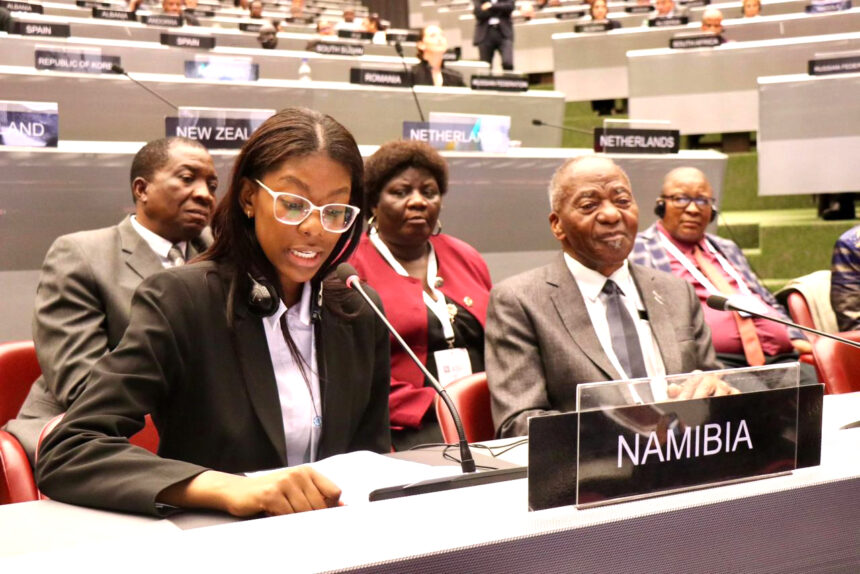Two representatives from Namibia’s Sixth Session of the Children’s Parliament engaged in discussions at the recent Inter-Parliamentary Union (IPU 149) Assembly held in Geneva, Switzerland, advocating legislative measures concerning school meal programmes.
Prisha Mokotjomela, who chairs the committee focused on children’s rights and climate change, along with Gerson Neumbo, the chairperson of the committee on education and ICT, joined National Assembly Speaker Peter Katjavivi at the four-day event.
The International Parliamentary Network for Education introduced a toolkit designed at offering parliamentarians evidence-based recommendations and support for advocating school meal initiatives.
“When it comes to these programmes, there is a lack of sustainability. Apart from that, there is also lack of continuity with these programmes due the lack of funding, or the fact that they are not compliant with the rules on safety and regulation,” said Mokotjomela.
She said the impact of climate change on local agriculture has resulted in a deficiency of these programmes in educational institutions.
“We have found that when it comes to these programmes offered to our children, they are not available in all the regions, especially the ones who need them the most. We have also realised that there is no proper diet in these meals that are provided,” noted the parliamentarian.
Neumbo concurred with his counterpart, adding that in terms of these food programmes, there tends to be a huge division among schools.
“There is a huge division among schools in northern Namibia, and we have also noticed that there is a lack of consistency in sustainability regarding the full implementation of these programmes,” he said.
He remarked that funding is not a concern due to the programme’s broad distribution. However, there remains a challenge in implementing the programme effectively.
Katjavivi emphasised that Namibia prioritises inclusivity and participatory democracy, which has led to the establishment of a children’s parliament.
“The children’s parliament has become more than just a space for dialogue, but an institution where young people hold legislators and government accountable. The previous children’s parliament session was a resounding success that culminated in the enactment of progressive legislation,” he said.
-psiririka@nepc.com.na



